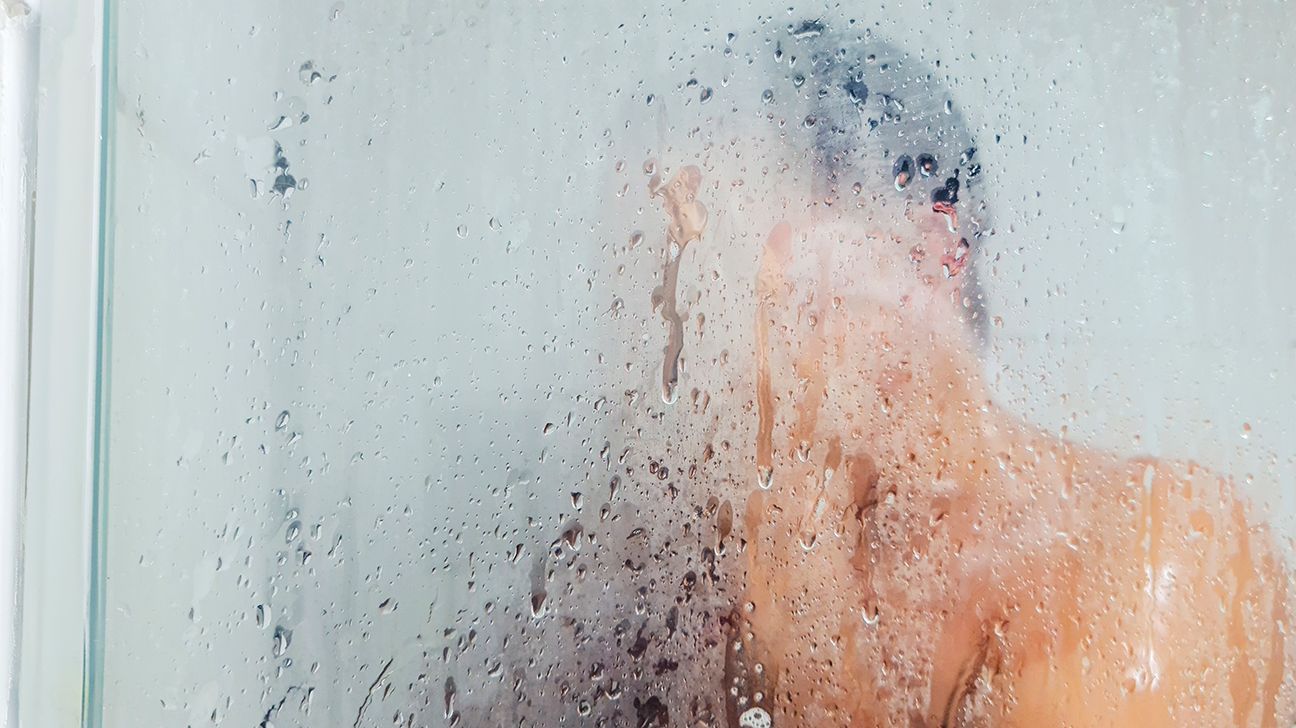Anecdotally, hot showers might help some people with migraine due to benefits like stress reduction. But many people find cold showers more effective.

Home remedies like hot showers can help relax tense muscles in the neck and shoulders, which may provide some comfort. But there’s no scientific evidence to suggest that hot showers help people during a migraine attack.
Reports of hot showers being helpful are all anecdotal (some people say it helps). But, anecdotally, other people with migraine find that hot showers make migraine attacks worse. The heat and steam might worsen some migraine symptoms, like nausea.
Some people say that a cold shower provides more relief during an attack.
Keep reading to learn more about these home remedies and whether they might help you.
Hot showers might not help your migraine. Moist heat increases blood flow and circulation by dilating blood vessels. This is typically the opposite effect that you want. Many migraine medications work by constricting blood vessels.
But there are a few ways hot water may benefit you:
Reduce tension in the body
Warm water can be soothing and relaxing. Standing under a warm shower may help release tight, stiff muscles in the head, neck, and shoulders, that result from stress. Stress is a very common migraine trigger.
Breathe in steam
Allergies and illnesses that cause nasal stuffiness, sinus pain, and sinus pressure, may trigger migraine attacks in some people. Inhaling steam during a shower may help alleviate sinus congestion by thinning mucus secretions in the nasal passages.
Add essential oils
The use of essential oils for health benefits is known as aromatherapy. Certain essential oils may be helpful during a migraine attack. Particularly if your attack was triggered by a different smell, like perfume. You can add a few drops of essential oils to a shower or bath.
Oils that may have benefits for migraine include:
- lavender
- chamomile
- peppermint
- eucalyptus
Breathing in essential oils may also help reduce tension and alleviate muscle tightness.
There are several other ways to add essential oils to your shower. You can mix the oil with a neutral carrier oil, like sesame or coconut oil, and massage it onto your skin. You can also put essential oils into a diffuser in your bathroom.
While research suggests there are health benefits, the FDA doesn’t monitor or regulate the purity or quality of essential oils. It’s important to talk with a healthcare professional before you begin using essential oils and be sure to research the quality of a brand’s products. Always do a patch test before trying a new essential oil.
More people report migraine relief from cold water than from hot water. There’s also more scientific evidence that using cold reduces migraine pain better than heat. A
Cold water could potentially help migraine pain by constricting blood vessels. Cold water and ice also have an immediate numbing effect that may reduce some pain sensations. Cold temperatures may also slow down the ability of your nerves to transmit pain signals to the brain.
To use cold water for migraine pain, you can try a cool or cold shower, a cold compress on your forehead, or an ice pack that covers the carotid arteries on each side of your neck.
You can also try alternating warm and cool showers, or utilizing varying temperatures on different parts of your body. A
Home remedies for migraine may be beneficial on their own, or when combined with over-the-counter or prescription migraine medication. Here are a few tips that you might want to try during your next migraine episode:
- Eliminate excess stimulation like bright lights and loud noises.
- Sleep as much as possible.
- Try to keep calm with deep breathing exercises or mediation.
- Try yoga poses like Child’s Pose or Bridge Pose.
- Take melatonin.
- Try acupressure massage on migraine trigger points.
- Make sure you’re getting enough vitamin D and magnesium.
- Rub Tiger Balm on your temples.
Can a cold shower trigger a migraine attack?
Migraine triggers vary from person to person. Some people find that cold showers trigger or worsen migraine, rather than making them feel better.
Does a cold shower reduce migraine?
Cold showers might reduce migraine pain in some people. Typically cold water and ice have a numbing effect that may help reduce migraine pain.
Will a hot bath help a headache?
Soaking in a warm or hot bath may help a headache by relaxing tight muscles and alleviating tension. You can also try adding a few drops of
There’s no scientific evidence that suggests hot showers can help migraine attacks. But there are a few benefits of hot water, such as relaxing muscles and reducing stress. Many people find that cold showers are actually more effective in reducing migraine pain.
